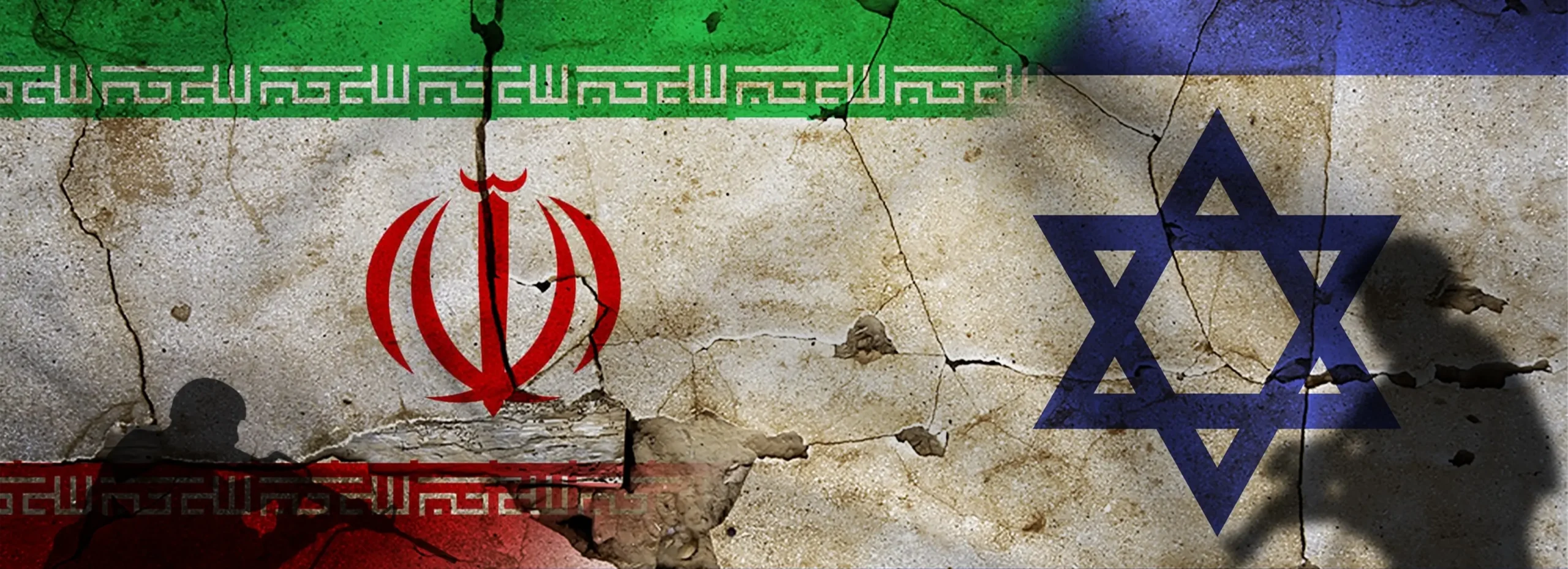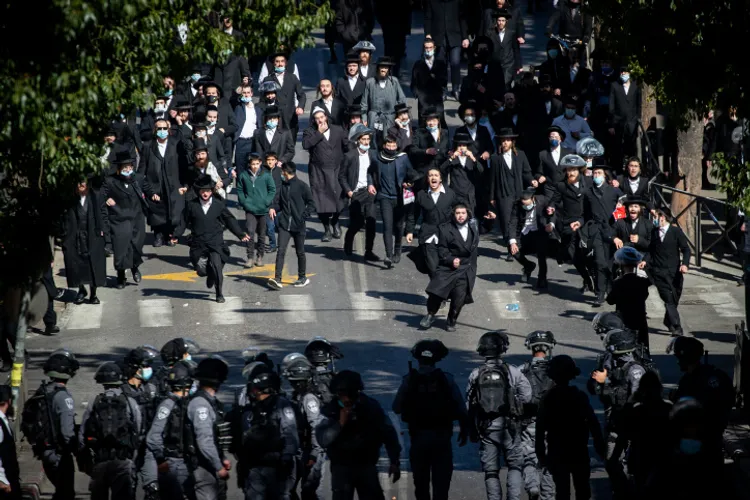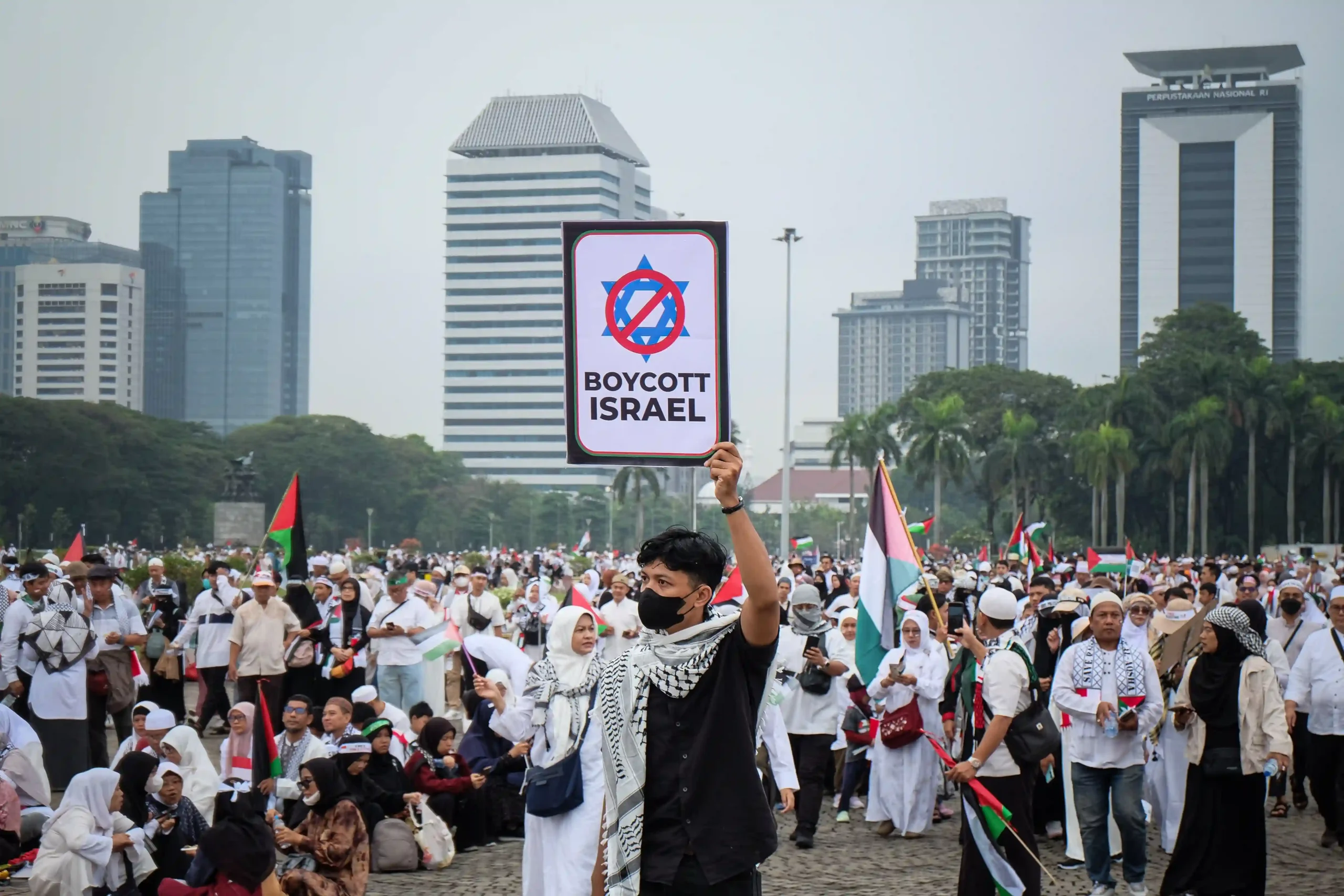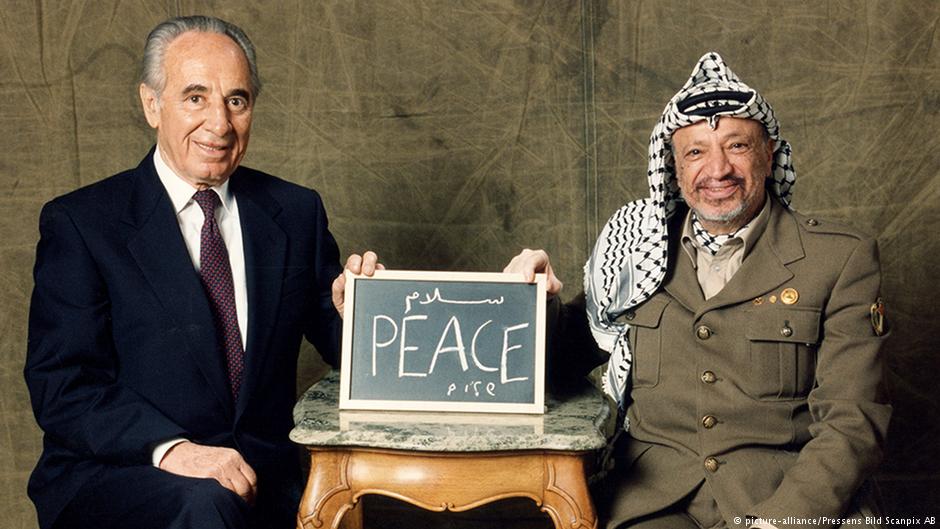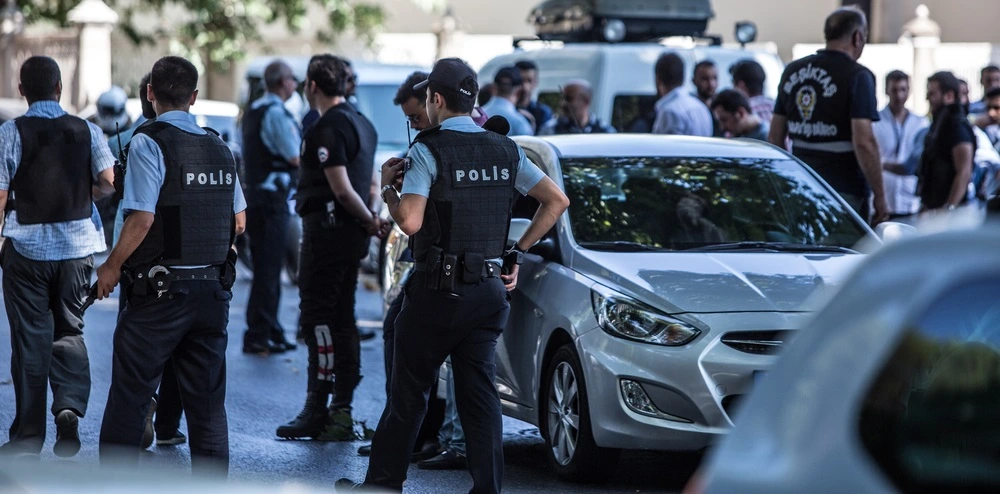28 Jul 2024
Unpacking the Majdal Shams Attack
The Israel-Hamas War has fundamentally altered the dynamics of engagement between Israel and Hezbollah. Before October 7 the two adversaries adhered to a set of engagement rules established after their 2006 conflicts, which restricted their military actions to specific areas like the Shebaa Farms, avoiding deeper incursions into each other's territory. However, over the past nine months, these rules have eroded, leading to an escalation that, while intense, has not yet escalated into full-scale war.
In October 2023, Hezbollah escalated its involvement by launching rockets into Israeli-occupied territories. This marked a significant shift, with both parties engaging in psychological warfare, openly sharing or hinting at intelligence about each other. Hezbollah’s actions soon expanded to include strikes deeper into Israeli territory. In response, Israel targeted Hezbollah military installations near the Israeli-Lebanese border. It conducted a series of targeted assassinations of leaders within the elite Radwan Division, which oversees operations near the border. Israel’s retaliatory measures have since broadened to encompass a wider area of southern Lebanon and the Bekaa Valley, indicating a significant escalation in the conflict dynamics.
The conflict further escalated to encompass the village of Majdal Shams, a Druze village in the Golan Heights. The Israeli military spokesperson reported that a rocket targeting the village was an Iranian-made Falaq-1, launched from the area north of Shebaa in southern Lebanon, with Hezbollah allegedly responsible for the attack.
According to the Israeli account and preliminary investigations, the missile was indeed launched from Lebanese territory, specifically the Shebaa Farms. However, it was not intended to strike Majdal Shams; an Israeli missile interception redirected it, causing it to land in the village.
22 Jul 2024
The Resurgence of Assassination as A Political Tool
Political assassinations have been a constant occurrence in world politics. Assassination as a political tool is, however, not exclusive to states nor state leaders; anyone who has fired a gun against a political figure claims the title of an assassin. Additionally, involvement in politics in any capacity can leave you vulnerable to such acts of retaliation. While gunmen and fanatics still impose a threat, states themselves are considered to be leading the pack. During the Cold War, the business of assassination was largely monopolized by superpowers. The United States and the Soviet Union directed operations targeting high-profile figures such as Cuba’s Fidel Castro, Chile’s Salvador Allende, and Yugoslavia’s Josip Broz Tito. Some "hits" gained more fame than others such as the assassination of dissident Bolshevik leader Leon Trotsky in Mexico City using an ice pick by Stalin’s secret police.
Russia and the United States, once the dominant global poles, continue to hold on to their old love for eliminating those they deem adversaries. The Kremlin has a long tradition, stretching back a century, of eliminating political dissidents both at home and abroad to send chilling messages to other opponents. In February 2024, a Russian pilot who had defected to Ukraine was assassinated in Spain. He was shot six times and then run over by a car, with Russian-made bullet casings left at the scene—a crude warning to others. Recently, U.S. intelligence uncovered a Russian plot to assassinate the chief executive of a powerful German arms manufacturer producing artillery shells and military vehicles for Ukraine. The United States has also continued its practice of carrying out high-profile assassinations with its most recent target being Qassem Soleimani, who was killed in Baghdad in a strike that showed little regard for international law.
States vary in their levels of expertise in assassination, with Israel often considered the maestro of this practice. Assassination has been a foundational principle of the Israeli state. Since its establishment in 1948, Israel has targeted Nazi leaders, Palestinians, Arabs, and scientists serving its enemies, such as German scientists working on the then Egyptian President Gamal Abdel Nasser’s advanced weapons program. Currently, the pool of targets has expanded, with Iranians becoming significant targets of Israeli operations. One of the latest operations against Iranians involved the assassination of Hassan Sayyad Khodaei. Known only to intelligence personnel as a key figure at the tactical level in the Quds Force, Khodaei's primary focus was on attempting (mostly unsuccessfully) to attack Jewish and Israeli targets abroad.
Nevertheless, the pool of nations engaged in assassination attempts appears to be expanding with new entrants. A notable incident occurred in Canada last June, where Sikh separatist Hardeep Singh Nijjar was shot 34 times. Additionally, in January of the same year, British Sikhs were warned by police about increased risks to their lives. This incident marks India’s grand entrance into the stage of those countries using assassination as a tool for advancing both international and domestic agendas. It highlights how political assassinations have resurfaced as a widespread tactic, no longer monopolized by a handful of states.
27 Jun 2024
Iran’s Presidential Election: Intense Competition and High Stakes
Iranians are voting in a snap presidential election on June 28, following the sudden death of President Ebrahim Raisi in a helicopter crash in May. This situation is not unprecedented for the Iranian regime, which has faced similar scenarios. In 1981, Iran’s first president following the Islamic Revolution Abolhassan Banisadr, was removed from office by the Islamic Consultative Assembly for political incompetence. Later that year, his successor, President Mohammad-Ali Rajai, was killed in a suitcase bombing. Thus, the current political and constitutional vacuum is not new to Iran. This pattern of instability has occurred twice before during significant periods of political upheaval.
Ebrahim Raisi was one of the few figures who enjoyed the trust of the security establishment and the regime's cleric guards. He was expected to oversee the rise of a new supreme leader after the death of Ali Khamenei or perhaps become the supreme leader himself. Therefore, Raisi's death poses a significant challenge to the mullahs' regime, especially given the internal and external challenges that Iran has faced recently.
On the other hand, Iran’s Supreme Leader Ali Khamenei paved the way for the presidential elections by selecting only six candidates who passed the examination conducted by the Guardian Council. This council, comprising 12 clerics appointed by the Supreme Leader, nominated by the judiciary chief, and approved by parliament, filtered the candidates based on loose criteria that it interprets and explains. Out of 80 candidates who applied for the position, only these six were allowed to run, with the Guardian Council having the final say in choosing or excluding candidates.
For instance, while the Iranian Constitution does not explicitly bar women from running for president, the Guardian Council effectively prevents them from doing so. Despite four women registering candidacies in the current and past 13 presidential elections, none have been approved.
Article 115 of Iran’s Constitution requires the president to be “a politician and cleric of Iranian origin, an Iranian citizen, a director and a wise man, who enjoys a good reputation, honesty, and piety, and believes in the foundations of the Islamic Republic of Iran and the official religion of the country.” Additionally, criteria related to administrative capabilities are considered. Beyond these criteria, it is widely believed that Khamenei favours a loyal and conservative president who aligns with his views and adheres to the principles of the regime, including obedience to the Supreme Leader.
Therefore, this analysis aims to clarify the significance of these elections, the management process, and the priorities that voters and the regime seek in the next president.
25 Jun 2024
The Threat of Darkness: Can Hezbollah Disable Israel’s Electric Grid
On June 19 and 22, Hezbollah released two recordings showing high-resolution aerial images, catching Israeli security authorities and regional observers off guard. Apparently captured by a drone flying at medium to low altitudes, the footage highlighted security and strategic sites, including fuel storage facilities, thermal power stations predominantly located in Haifa, and the city's docks. This move underscored the potential reach of Hezbollah's missiles and drones to critical Israeli energy infrastructure.
The release triggered widespread speculation about Hezbollah’s missile capabilities, with analysts suggesting these missiles could directly strike the highlighted facilities. Such an attack could further destabilise Israel's economy, which is already experiencing significant challenges. The current economic situation is considered one of the worst in Israel's history, rivalled only by the first two decades after the state's founding and the Yom Kippur War.
On the other hand, many of these analyses have overlooked the Israeli electrical grid's distribution of generation stations, electrical load, maximum voltage, and generation sources, leaving the assessment incomplete. Even if Hezbollah’s missiles were to reach these stations and hit their targets with enough power and accuracy to disable them, it does not necessarily mean the entire electrical grid would be taken out of service or significantly reduce its capacity to produce electrical energy, which could impact daily life in Israel.
This analysis aims to review the generation stations, their capabilities, and their locations within Israel to investigate the potential impact of Hezbollah’s anticipated attacks on these facilities.
22 Apr 2024
The War on TikTok: Security Concerns and Anti-Semitism
Social media has played a pivotal role in reshaping the narratives of the Palestinian-Israeli conflict since the outbreak of Oct. 7. The dissemination of news and information now extends far beyond traditional media outlets. Instead, social media platforms have emerged as potent influencers, surpassing the resonance of weapons and delineating a global divide between Israel and Palestine. These platforms have become arenas of contention, with users segregating into supporters and opponents, rendering them susceptible to content-related pressures amid the war. The war on Gaza has once again thrust TikTok into a heated discourse regarding the application's dangers and impact as a global forum for ordinary individuals to voice their opinions while also serving as a battleground for political factions to vie for narrative control. This debate assumes added significance as the audience of traditional news outlets continues to dwindle.
Recently, numerous TikTok videos concerning the war on Gaza garnered widespread attention, accompanied by pro-Palestinian hashtags, prompting Israeli President Isaac Herzog to engage in discussions with TikTok executives in February 2024. Expressing apprehension over the surge in antisemitic content on the platform since the onset of the Israeli war on Gaza, they assured President Herzog of their commitment to address the issue in the future. In a related context, social media companies based in the United States have already demonstrated a readiness to censor pro-Palestinian content. Human Rights Watch, in its December 2023 report, documented over 1,050 instances of content removal and suppression on Instagram and Facebook by Palestinians and their supporters between October and November 2023.
In this context, U.S. legislators, conservative activists, and technology investors have voiced calls to ban TikTok in the U.S., citing escalating concerns. These calls gained significant traction on March 13, 2024, when the U.S. House of Representatives overwhelmingly voted in favour of a bill. The bill places ByteDance, the parent company of TikTok, with two options, both fraught with implications: either sell the application to a U.S.-based company or confront a ban on distribution through significant platforms and application stores. President Joseph Biden voiced his backing for the bill and signalled his readiness to sign it into law pending Senate approval. However, the U.S. initiative this time brings forth broader concerns beyond national security, encompassing the application's ramifications on Israel's reputation. The country's standing has been damaged due to the swift dissemination of content depicting Israel's crimes against civilians in the Gaza Strip.
This analysis aims to elucidate the reasons behind the shift in the U.S. perspective on TikTok, moving from security concerns to the perception of promoting antisemitism. What repercussions would the embargo have on both the United States and Israel?
17 Apr 2024
The Fallout of Escalating Iranian-Israeli Tensions
The Iranian Revolutionary Guard's Air Force made a historic move by launching a direct assault on Israel in an operation dubbed "The True Promise," marking the first instance of such an attack originating from Iranian territory. Late on Saturday, April 13, 2024, Israeli cities were subjected to a relentless barrage of drones and ballistic missiles, signalling a significant escalation in tensions between the two nations. This offensive action follows Iran's earlier pledge to retaliate against Israel for its targeting of the Iranian consulate in Damascus, an incident that resulted in the deaths of seven Revolutionary Guard members, including two high-ranking leaders, on April 1.
This calculated escalation underscores Iran's unwavering commitment to defending its sovereignty and national interests while bolstering regional security. The global spotlight now shifts to the scale, sophistication, and broader implications of Iran's strike against Israel.
The Iranian assault on Israeli soil marks a pivotal moment in the ongoing conflict between the two adversaries, thrusting their hostilities from the shadows into the open arena of direct confrontation.
Against this backdrop, the Israeli response hinges on several key factors. Firstly, the extent to which Iranian proxies, such as the Houthis and Hezbollah, may actively participate in the conflict will influence Israel's strategic calculus. Secondly, the response will be shaped by the presence or absence of casualties among Israeli forces, as well as the effectiveness of its defence systems, bolstered by support from the United States, in mitigating potential damage. Lastly, how Israel opts to retaliate will be of paramount importance in determining the trajectory of the conflict.
Consequently, this analysis aims to elucidate the attack's ramifications and its economic repercussions on the parties involved in the conflict.
2 Apr 2024
Israel-Hamas War: A Potential Breaking Point for Israeli Society
The dynamics between the Haredi Jewish community and the state of Israel are intricate and peculiar, shaped by many complex factors. Despite their historical opposition to the state's establishment and its Zionist underpinnings, they have emerged as prominent beneficiaries within Israeli society. Despite their active involvement in politics, with dedicated parties and ministerial representation in successive Israeli governments, the Haredi community seeks to diminish government authority over them. They maintain superficial compliance while preserving their self-organised societal structures.
These contradictions have been a continual source of critique within Israeli society since the State's inception. Successive Israeli administrations have consistently granted numerous privileges to the Haredi Jewish community, influenced by their political and religious sway. Chief among these privileges is their exemption from mandatory conscription, unlike other societal groups, accompanied by various financial incentives. However, the landscape is poised for significant transformation following the Gaza war.
This analysis aims to delve into the economic traits of the Haredi Jewish community and explore their broader economic impacts on Israeli society.
22 Mar 2024
Will Netanyahu Conscript the Haredim?
This article was originally published on Ahram Online on Mar. 22, 2024.
The question of conscripting Ultra-Orthodox Jews, commonly known as Haredim, into the Israeli military has once again taken centre stage. This resurgence in debate follows calls by secularists, supported by several war cabinet members, including Defence Minister Yoav Gallant. During a press conference on Feb. 28, they advocated for amending conscription laws to include the Haredim.
The urgency behind these calls is fuelled by various challenges Israel currently faces. These include a labour shortage exacerbated by the ongoing Israel-Hamas War and tensions along the northern border with Hezbollah. The potential inclusion of Haredim in military service has sparked significant controversy within the Haredi community. Chief Sephardi Rabbi Yitzhak Yosef even issued a warning of a mass exodus of Haredi Jews from Israel if conscription becomes mandatory.
This latest call reignites an enduring conflict within Israeli society, rooted in the exemption privileges historically granted to Haredim. The issue remains unresolved due to the influence of religious parties, the political considerations of prime ministers, and the social dynamics within Israeli society. The exemption policies have long been a contention, particularly among secular citizens. Tensions escalated during the costly mobilisation efforts for the Israel-Hamas War, with over 66,000 Ultra-Orthodox youths exempted from military service in 2023 alone. This disparity has led to increased demands for the inclusion of Haredim in the military service, especially given the multiple security threats faced by Israel since Oct. 7.
Prime Minister Benjamin Netanyahu's return to power in late 2022 alongside the right-wing bloc underscored their determination to challenge conscription policies. Netanyahu's efforts to amend the Judicial Authority Law, dubbed "judicial reform", were met with widespread opposition from the secular community, leading to massive demonstrations.
These amendments aimed to circumvent a 2017 Supreme Court ruling that invalidated legislation preventing Haredim's conscription. Despite government concessions, including multiple deferments of recruitment deadlines, the issue remains unresolved. As the latest extension is set to expire on Mar. 31, a looming question remains: Will Netanyahu conscript the Haredim?
3 Mar 2024
What if the U.S. Ceased Providing Military Aid to Israel?
A recent statement from the European Union Foreign Policy Commissioner, Josep Borrell, urging Israel's allies, notably Washington, to cease supplying weapons to Israel has ignited widespread controversy. This call comes amid heightened concerns over the significant civilian deaths in the Gaza Strip. Coinciding with this plea, a Dutch appeals court decision has prohibited the export of all spare parts for F-35 fighter jets destined for Israel. These developments unfold against the backdrop of Israel's plans to initiate an expanded military operation in Rafah. Such an operation raises the spectre of a potential humanitarian catastrophe, particularly concerning the over 1.3 million displaced individuals from the Gaza Strip who have sought refuge in Rafah since the commencement of military activities in the enclave.
The United States provides Israel with annual military aid worth $3.8 billion, which stands as one of the most substantial military aid packages supplied by the U.S. to any country globally. This commitment was reaffirmed by U.S. officials, including President Joseph Biden, who, during his tenure as Vice President under Barack Obama, emphasised the enduring strategic alliance between the two countries. Then Vice President Biden said the U.S. commitment to Israel transcends moral obligations and is a deeply rooted strategic obligation. During a visit to Tel Aviv amid the events of Oct. 7, he underscored that “the existence of an independent and secure Israel within globally recognised borders aligns with the practical strategic interests of the United States.” He further emphasised, “I have long said: If Israel didn't exist, we would have to invent it.” Evidence of the depth of relations and continued support is further demonstrated by Congress' approval of an additional $14.1 billion in military aid to Israel. This aid is intended to bolster Israel's capabilities in its conflict with the Hamas movement, specifically by providing air and missile defence support and replenishing U.S. military stock granted to Israel. This level of support echoes the assistance provided by the United States to Israel during the October 1973 War with the Egyptian Army.
The generous and unconditional support provided by the U.S. to Israel prompts numerous inquiries, particularly in the context of the U.S.'s inability to exert pressure on Israel to stop its war on Gaza. Additionally, its loss of control over the right-wing government's decision-making process regarding the potential expansion of the war to include Rafah, portending an imminent conflict with Egypt. Hence, this analysis endeavours to address a pivotal question: Will these developments prompt a shift in the U.S. stance toward Prime Minister Benjamin Netanyahu and his right-wing government, potentially leading to a withdrawal from the notion of an expanded operation in Rafah? Furthermore, can the United States feasibly cease its military aid to this strategic ally in the Middle East?
6 Feb 2024
The Economic Impacts of Boycotts Against Israel and Supporting Companies
The documented history of employing a boycott as an economic weapon traces its origins to 432 B.C., Athens enacted the Megarian Decree, named after the city of Megara in ancient Greece. This decree comprised a series of economic sanctions, with a pivotal measure prohibiting Megarian goods from entering Athens. It extended to restricting Athenian ships from docking in Megara and, ultimately, barred Megarians from trading within the Athenian market.
In response, Megara and its allies in the Peloponnesian League took retaliatory economic actions, prominently featuring a boycott of Athenian goods. This reciprocal economic pressure adversely affected both entities, culminating in the onset of the Peloponnesian War. Lasting approximately 27 years, this conflict subsequently impeded the growth and continuity of Greek civilisation.
The following centuries witnessed the global utilisation of economic boycotts for various political purposes, primarily targeting the party subject to the sanctions, causing it to abandon a particular policy. Noteworthy instances include the Jews' first-century B.C. boycott of Roman goods, a protest against Roman occupation. In the 16th century, the Dutch Republic boycotted Spanish goods in opposition to Spanish rule. Additionally, during the 18th century, the U.S. colonies boycotted British goods as a protest against exorbitant taxes.
Contrary to common belief in the Arab world, the weaponisation of economic boycotts is not a recent phenomenon. Over the past two centuries, numerous academic studies have comprehensively examined and analysed its impact on both the boycotting and boycotted economies. These studies aim to gauge the effectiveness of economic boycotts in realising their intended goals.
The tactic of economic boycotts made its debut in the context of the Arab-Israeli conflict in 1922, when Palestinian Arab leaders initiated a boycott targeting Jewish-owned businesses in Palestine, aiming to inflict economic harm upon the Jewish population. These boycott attempts persisted sporadically throughout the 1930s and 1940s, with a notable instance occurring in 1936 when Palestinian Arab leaders advocated for a comprehensive boycott of all things associated with Jewish identity, even resorting to physical violence against Arabs who disregarded the boycott. Despite these efforts, the boycott proved unsuccessful, given the significant reliance of the Palestinian population on Jewish professionals such as lawyers, doctors, and hospitals.
Subsequently, the boycott assumed a regional dimension in December 1945 when the six states comprising the Arab League jointly issued the initial call for an economic boycott against the Jewish community in Palestine. This declaration went beyond mere encouragement and urged all Arab countries, regardless of their League membership status, to prohibit the trade of Jewish products.
In 1946, the situation evolved with the Arab League establishing the Permanent Boycott Committee, intending to heighten the implementation of the boycott. Despite these efforts, the boycott's lack of success became evident, as outlined in the first annual report of the Boycott Committee.
Following the committee's shortcomings, the League swiftly bolstered its structure, transforming it into the Central Boycott Office. Headquartered in Damascus, it established branch offices in every member state of the Arab League. The pivotal role of the county commissioner was instituted to lead the office, accompanied by appointed deputies serving as liaison officers accredited by each member state of the Arab League.
The Central Office in Damascus assumed the pivotal role of coordinating the boycott in tandem with its affiliated offices. It was responsible for presenting regular reports to the Council of the Arab League. Starting from 1951, semiannual meetings were scheduled to synchronise boycott policies and formulate blacklists of individuals and companies breaching the boycott. The punitive measures were executed locally, with each member state implementing decisions through legal and administrative executive procedures.
From 1951 to the present moment of composing this analysis, calls for boycotts have been recurrent with each political conflict between Palestinians and Israelis. They have been wielded as a means of resistance against Israeli occupation and its perceived unjust policies toward the Palestinian population. However, these calls have generally manifested in three distinct patterns, as explained below.
5 Feb 2024
Navigating the Two-State Solution: Balancing Possibility and Hope in the Palestinian Cause
The Palestinian-Israeli conflict stands as one of the world's most intricate and pressing issues, marked by enduring conflicts between Palestinians and Israelis, with potentially dire consequences that could escalate into a regional war. In 1993, both Yasser Arafat, leader of the Palestine Liberation Organisation, and Israeli Prime Minister Yitzhak Rabin embraced the two-state solution, leading to the signing of the Oslo Accords. The essence of these agreements aimed at establishing two states, one for Palestinians and the other for Israelis, as a pivotal step toward a conclusive resolution to the prolonged and costly conflict. Unfortunately, the intended implementation of these agreements faltered, resulting in failed efforts and the division of Palestinian society between Fatah in the West Bank and Hamas in the Gaza Strip. Instead of fostering confidence, Israeli positions hardened toward Palestinians, leading to a surge in settlements in the West Bank and east Jerusalem. Currently, approximately 700,000 Israelis reside on lands designated for the Palestinian State, contributing to a decline in both regional and global interest in the matter.
The Palestinian cause regained global prominence with the events of October 7, marking the end of a three-decade stagnation and a background role amid the Arab Spring and subsequent regional and global crises. The Israel-Hamas War raised international concerns about the potential escalation into a regional war. It heightened fears of derailing the Middle East peace process, particularly the "two-state solution." Israeli officials have recently declared that this option no longer exists, despite opposition and warnings from some of Tel Aviv's closest allies, notably Washington.
These indicators underscore the notion that stability in the Middle East hinges on a resolution to the Palestinian cause that aligns with the national aspirations of the Palestinian people. Consequently, discussions surrounding a two-state solution have resurfaced as the optimal proposal to end the conflict, serving as an alternative to the right-wing expansion and settlement policy on the West Bank. Such a policy could potentially isolate and compromise Israel's security while significantly depleting its military and financial resources. Hence, this analysis addresses the crucial question: Is the two-state solution still viable given the current circumstances?
29 Jan 2024
Decoding the Istanbul Church Attack
This article was originally published on Ahram Online on Jan. 31, 2024.
The attack on the Santa Maria church in Istanbul is the first attack on Turkey claimed by IS since 2017. According to the Islamic State's statement, the attack was a response to one of its leaders instructing for the attack on "Jews and Christians". However, the end goal of the attack remains unclear and that raises questions about the legitimacy of IS’s claim. Over the last decade, the world has witnessed a sharp rise in terrorist attacks often claimed by terrorist groups striving to establish their relevance and influence over international politics. In fact, between 1998 and 2016, an estimated 16% of attacks were falsely claimed.





